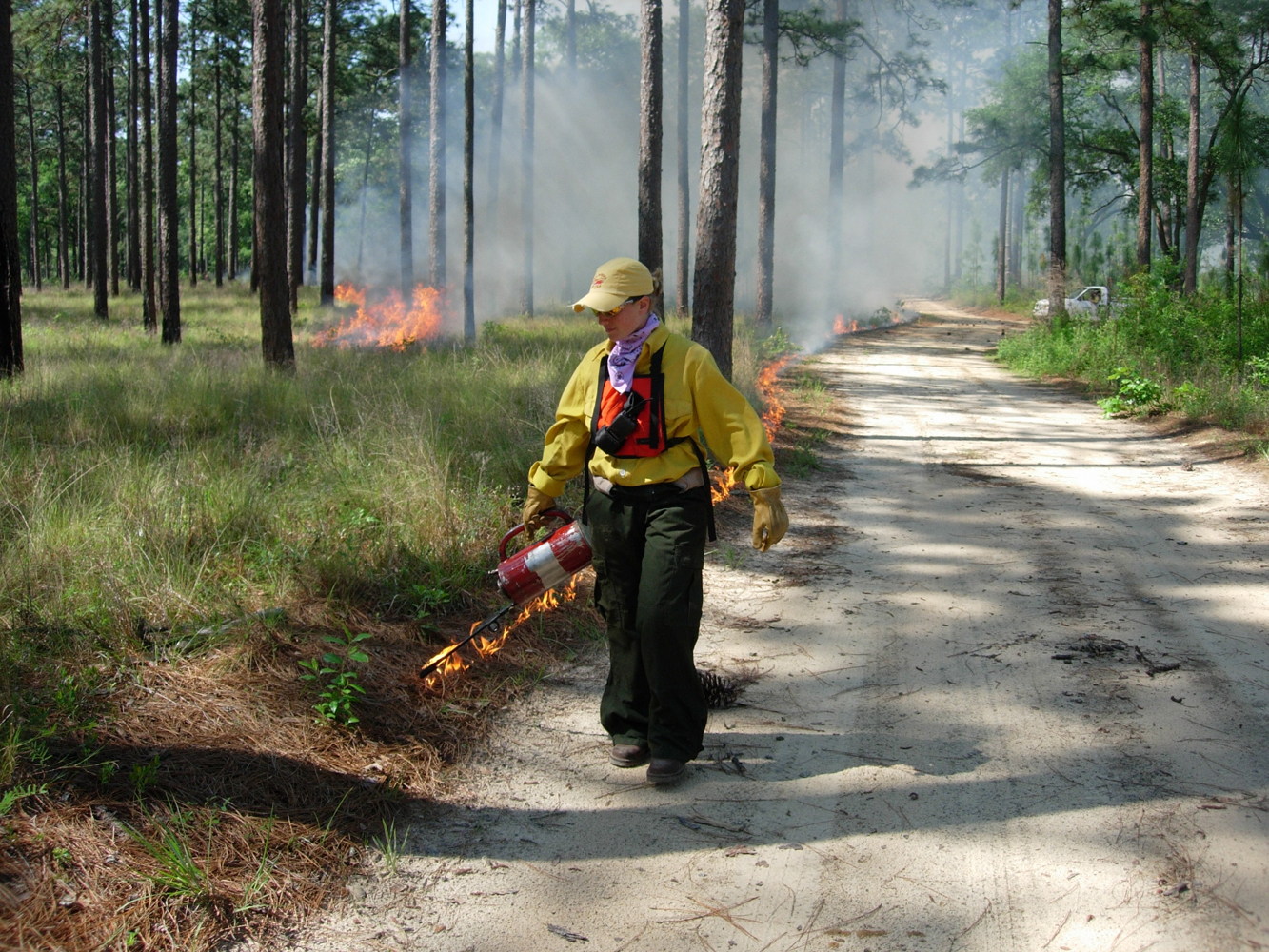
What is Prescribed Fire?
Prescribed fire is safe way to apply a natural process, ensure ecosystem health, and reduce wildfire risk. It is an effective land management tool in Georgia which involves setting a fire in a defined area under certain weather and fuel conditions to achieve a specific outcome or management goal.
Habitats across the state have evolved with fire. There is the need for the strategic application of fire that mimics this natural cycle. Fire is as natural as sunshine, rain, and wind in many plant communities from upland pine, pine flatwoods, and wet prairies in the coastal plain to high elevation bogs and table mountain pine forests in the mountains. Fire also benefits many of the rare animal species that are declining in our state. Some of these declines are caused almost totally by fire exclusion. Frequent prescribed fire also makes the forests healthier by preventing the build-up of flammable fuels that set the stage for destructive wildfires.
“Prescribed burning means the controlled application of fire to existing vegetative fuels under specific environmental conditions and following appropriate precautionary measures, which causes the fire to be confined to a pre-determined area and accomplishes one or more planned land management objectives, or to mitigate catastrophic wildfires.”
Georgia Prescribed Burning Act, 1992
Prescribed burning is carried out by experienced, trained, and certified land managers on both public and private lands throughout Georgia. These professionals assess forest conditions, determine the type of fire needed, and write a “prescription” for the application of fire. Prescribed burns are permitted by the Georgia Forestry Commission (GFC) depending upon predicted weather conditions and safety measures to be used. GFC also offers a Certified Burner Manager Program that serves to enhance the skills of land managers, and acquaint burners with regulations and offer opportunities for more advanced training.
Excuse Our Smoke
Smoke from prescribed fires is a sign that certain lands are being cared for properly. Great care is taken by prescribed fire managers to minimize any temporary inconveniences created by smoke. Smoke management plans for prescribed burns are designed so that smoke-sensitive areas like roads, schools, hospitals, and residences, etc. are not negatively affected by the burn. Learn more about managing smoke on your burn here.
Smoke from prescribed fires does not contribute appreciably to air quality issues since the practice typically avoids times of stagnant summer air. Uncontrolled wildfires often occur during the summer when there is already a bad urban air quality problem. We can reduce the risk of wildfires and the resulting smoke or air quality problems with well-timed prescribed fires. No other tool can so effectively remove the hazardous buildup of woodland fuels.
